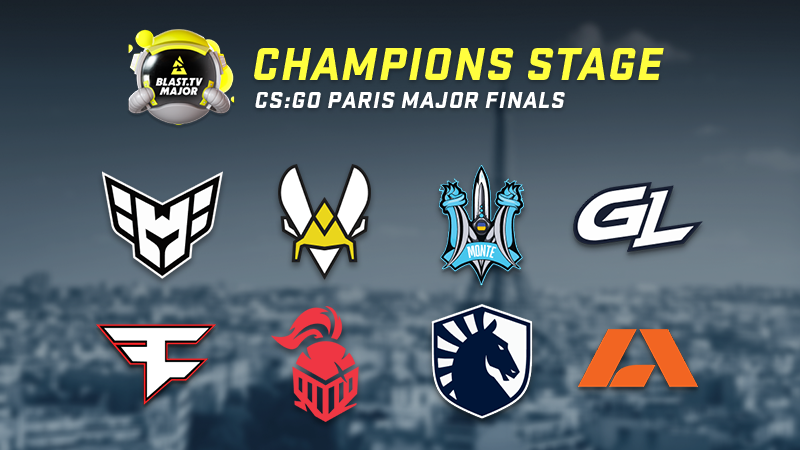The Hookup Doctor's Guide
Navigating the world of modern dating and relationships.
CSGO Major Championships: Where Legends Rise and Rivals Fall
Discover the thrilling world of CSGO Major Championships, where legends rise and fierce rivalries unfold. Don't miss the action!
The History of CS:GO Major Championships: A Journey Through Time
The history of CS:GO Major Championships dates back to 2013 when the first tournament was held. Since then, these prestigious events have become the pinnacle of competitive play in the game, showcasing the best teams from around the world. The Major Championships not only highlight remarkable individual talent but also foster a sense of camaraderie within the gaming community. Over the years, we have seen a varied list of champions, from Fnatic and SK Telecom T1 to Team Liquid and FaZe Clan, each leaving a legacy that has shaped the esports landscape.
As the CS:GO Major Championships evolved, so too did the format and viewership. The introduction of the Major qualifiers allowed a more diverse pool of teams to compete, ensuring that underdogs could challenge established powerhouses. Significant moments, such as the remarkable triple overtime match at ELEAGUE Major 2017, and the iconic victory of Immortals at Cologne 2016, have become etched in the annals of esports history. As we look to the future, it's clear that the Major Championships will continue to be a cornerstone of competitive CS:GO, inspiring new generations of players and fans alike.

Counter-Strike is a popular tactical first-person shooter game franchise that pits terrorist and counter-terrorist teams against each other. Players engage in objective-based gameplay, utilizing various strategies and teamwork to accomplish goals. One exciting aspect of the game is the csgo weapon case 2, which offers players opportunities to unlock unique weapons and skins.
Top Strategies That Defined CS:GO Major Finals
The world of CS:GO Major Finals has been shaped by numerous pivotal strategies that teams have employed to secure victory. One of the most effective approaches is the use of map control, where teams carefully strategize to dominate key areas of the map. This often involves synchronizing smokes, flashes, and molotovs to create advantageous situations. For example, during the finals of CS:GO's major tournaments, successful teams have demonstrated exceptional skill in taking control of critical choke points, leading to significant momentum shifts. By constantly adapting their strategies based on the opponent's play style, these teams have consistently outmaneuvered their competitors.
Another integral strategy within CS:GO Major Finals is the emphasis on teamwork and communication. Teams that excel often utilize a set of calls and roles, ensuring that each player's strengths are maximized. As seen in past finals, the most successful squads maintain clear in-game communication, employing tactical pauses and adjustments throughout the match. This adaptability allows them to respond effectively to pressing challenges. In conclusion, the combination of strong map control and effective team communication remains a defining hallmark of the strategies that lead to success in the high-stakes scenario of CS:GO Major Finals.
How Do Teams Qualify for CS:GO Major Championships?
To qualify for CS:GO Major Championships, teams must go through a rigorous qualification process that includes regional rankings and qualifier tournaments. Initially, teams compete in various leagues and events to gain points towards their global ranking. The top teams from these rankings are often granted direct invitations to the Major tournaments. However, for those that do not secure an invitation, there are multiple regional qualifiers that offer additional slots to the Major. These qualifiers are fiercely contested, with teams from around the world vying for their chance to compete on the biggest stages.
During the CS:GO Major Championships, teams can expect a mix of intense competition and high-stakes gameplay. The tournaments typically feature an open qualifier phase, where even amateur teams can enter and prove their skills. Successful teams from these open qualifiers then advance to the main event, where they face off against some of the best players and teams globally. It's important for aspiring teams to focus on both individual skill development and cohesive teamwork, as both factors play a crucial role in navigating the challenging path to Major qualification.